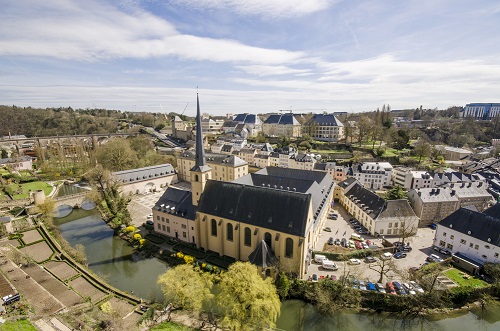Luxembourg is one of the world’s smallest countries, and yet it remains a popular destination for tourists and expats. Indeed, it is not unknown for people in neighbouring nations to cross the border simply to have lunch. If you’re looking to visit Luxembourg, you may need a visa, depending on your nationality and the reason for your trip. Read on for further information.
Will I need a visa?
Whether or not you need a visa to visit Luxembourg will depend on how long you intend to stay there, and your nationality. If you are from an EU/EEA member state, or from the UK, the US or Australia, you will not need a visa for the first 90 days of your trip. However, citizens from many of these countries will need a passport that is valid for at least 90 days from your intended departure date from Luxembourg.
Visitors from other nations, including China and India, will require a visa.
How do I apply for an entry visa?
In order to apply for a Schengen visa (a short-term entry visa applicable to the countries in the Schengen zone), you will need:
• A completed application form
• Two passport-format photos
• Your passport and any copies of previous visas
• Travel insurance (including medical coverage) with confirmation of a minimum of €30,000 coverage within the entire Schengen area
• A cover letter stating the purpose of your visit and your itinerary
• Proof of civil status (for example, this could be your marriage certificate or the birth certificates of your children)
• Flight itinerary
• The address of your accommodation, including hotels
• Proof that you are able to support yourself financially throughout your stay (for example, a recent statement from your bank for the last three months that shows funds of at least €50 (£40) per day spent in the country, or traveller’s cheques, or proof of sponsorship)
You may need further documentation depending on your status.
If you plan to stay in Luxembourg for more than 90 days, you must make a declaration of arrival (déclaration d’arrivée) at the local town hall (commune) in your locality within eight days. Within three months of arriving, you must get an address registration certificate (déclaration d’enregistrement) from the commune.
If you have lived in Luxembourg legally for a continuous period of five years, you will automatically acquire the right of permanent residence in Luxembourg and can get an attestation de séjour permanent from your local commune.

How much does it cost?
A short-term stay visa for third party nationals usually costs around €50.
A long-term stay visa for third party nationals usually costs around €60.
How long does it take?
It will take 10 to 15 days to process your visa in your local Luxembourg mission.
What will I need to apply for a work visa?
Similarly, your access to a work visa will depend on your nationality. EU/EEA citizens will find the process is more streamlined, and you will not need a permit to reside and work in Luxembourg.
If you’re a third country national, you will need both an authorisation to stay document and a residence permit in order to work in Luxembourg. Since EU nationals are prioritised, your employer will need to complete a form from the National Employment Administration which states that they have made every effort to find a local worker.
You will need to apply to the Immigration Directorate for a temporary leave to stay in Luxembourg before you leave your home nation. To do so you will need:
• A valid passport
• A type D visa (depending on your citizenship)
This temporary visa will allow you to enter Luxembourg, and you can then complete the rest of the process once you arrive. You will need to fill out a declaration that you intend to live in a particular region.
Work visas will depend on the type of work you intend to carry out. For example, whether you are transferring to the Luxembourg branch of your existing company or going to work for a new employer. Work visas will usually be issued for a two-year period.
You will need to submit the following (original or certified) documents:
• A valid passport photo
• Your birth certificate
• Proof of clean criminal record
• Your resume and professional qualifications
• Your employment contract
• A certificate allowing the employer to hire a third-country national
• A cover letter explaining your motivation for moving to Luxembourg
Your employment contract must also cohere to the following criteria:
• Minimum wage of no less than €2307.56 per month
• A certificate for your profession
• If hired for manual skills, you will need proof of two years’ experience and a certificate
• If you do not have a certificate, then you will need proof of 10 years’ practical experience in a similar field
• If your profession does not require a certificate, then you will need six years’ practical experience in a similar field
You will also need a long-stay residence permit, and to apply for this you will need to show the temporary permit you already have along with proof of your accommodation and a fee. You must present yourself at your local commune to complete a declaration of arrival.
If you are self-employed, then you will need to go through a similar process in applying for a work visa, and you may need to submit any business licenses if applicable.
You may also apply for a permit for business.
You will be able to bring your family into the country, but must essentially act as their sponsor. You may need to demonstrate that you can support them financially.
Seasonal workers must also apply for a permit to work in Luxembourg, and you will need to go through the process above. If you are applying to work as an au pair, you will need a different visa.
Students enrolled in full-time courses at university in Luxembourg may also be entitled to work as part of their student visa.

EU blue card
If you have been issued a residence permit for work that requires advanced skills by an EU member country, you will be eligible for a EU blue card. This is an approved EU-wide work permit, which allows highly skilled non-EU citizens to work and live in any country within the European Union, excluding Denmark, Ireland and the United Kingdom.
Bringing a pet into Luxembourg
You can bring your pet into the country, but your pet will require:
• A microchip
• Proof that its had an anti-rabies vaccination
• A health certificate certified by a licensed vet

